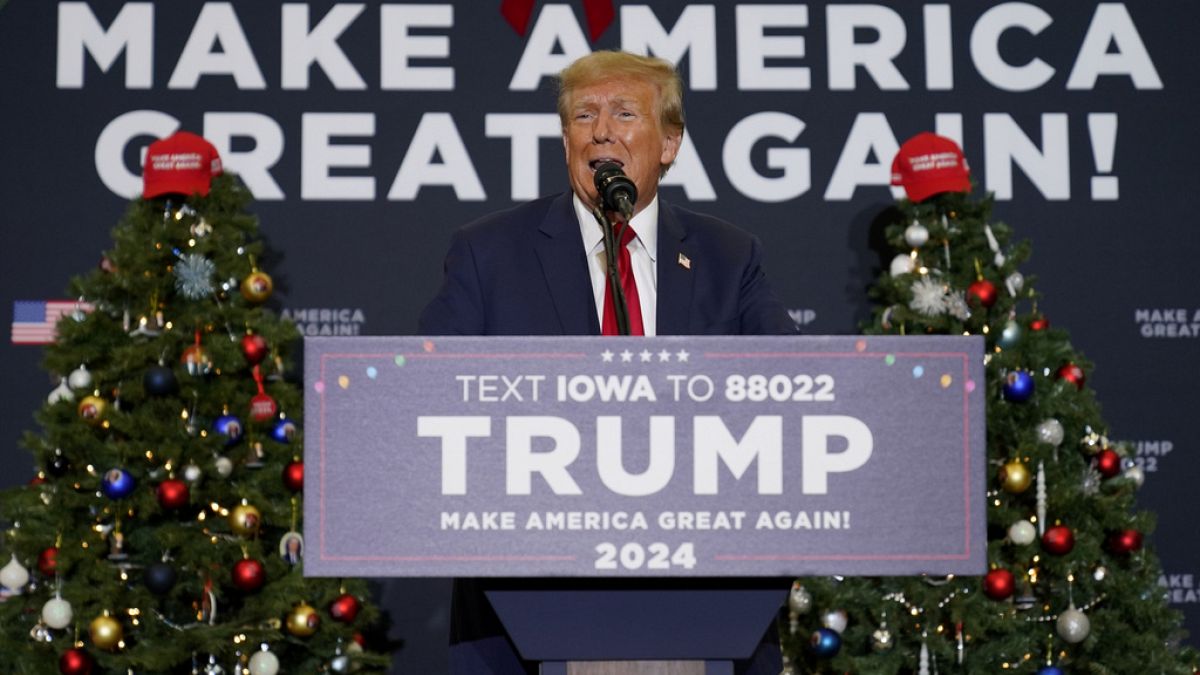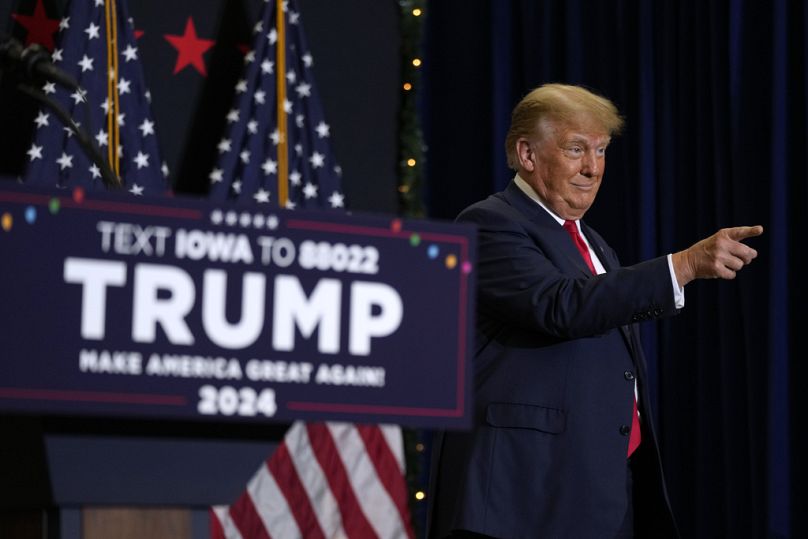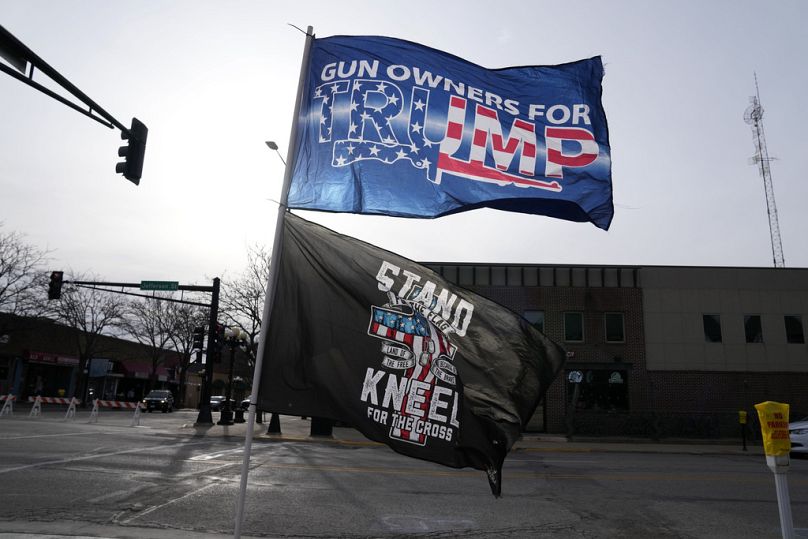The former president has been removed from the Colorado presidential primary ballot in a historic ruling by the state's Supreme Court over his role in the January 2021 Capitol attack.
The Colorado Supreme Court has declared former President Donald Trump ineligible for the White House under the US Constitution’s insurrection clause and removed him from the state’s presidential primary ballot.
The move has set up a likely showdown in the nation’s highest court to decide whether the front-runner for the Republican nomination can remain in the race.
The decision reverses an earlier one from a Colorado judge, who ruled that the 14th Amendment's insurrection ban did not apply to presidents because the section did not explicitly mention the presidency. The same court found that Trump had participated in an insurrection on 6 January.
Trump’s lawyers have long promised to appeal any disqualification immediately to the US Supreme Court, which has the final say about constitutional matters.
Trump's legal spokeswoman Alina Habba criticised the decision, saying: “This ruling, issued by the Colorado Supreme Court, attacks the very heart of this nation’s democracy. It will not stand, and we trust that the Supreme Court will reverse this unconstitutional order.”
The twice-impeached former president didn't mention the decision during a rally on Tuesday evening in Waterloo, Iowa, but his campaign sent out a fundraising email citing what it called a “tyrannical ruling.”
Trump lost Colorado by 13 percentage points in 2020 and doesn’t need the state to win next year’s presidential election.
However, the danger for the former president is that more courts and election officials will follow Colorado’s lead and exclude Trump from must-win states.
Dozens of lawsuits have been filed nationally to disqualify Trump under section 3 of the amendment, which was designed to keep former Confederates from returning to government after the Civil War.
Section 3 bars from office anyone who swore an oath to “support” the Constitution and then “engaged in insurrection or rebellion” against it - it has only been used a handful of times since the decade after the Civil War.
While Colorado will likely be seen by some as relatively unimportant for Trump potentially taking the White House once more, experts say it could be the start of something much larger.
“I think it may embolden other state courts or secretaries to act now that the bandage has been ripped off,” Derek Muller, a Notre Dame law professor who has closely followed the Section 3 cases, said after the ruling. “This is a major threat to Trump’s candidacy.”
The Colorado Supreme Court’s decision comes as Trump was forced to defend his recent comments about migrants crossing the southern border “poisoning the blood” of America.
Tackling the criticism of his rhetoric head on, he told a campaign rally in Waterloo, Iowa: “I never read ‘Mein Kampf’,” referring to comparisons made to fascist hyperbole.
On Tuesday, he claimed that immigrants in the US were “destroying the blood of our country, they’re destroying the fabric of our country.”
Several politicians and extremism experts have noted his language echoed writings from Hitler about the “purity” of Aryan blood, which underpinned Nazi Germany's systematic murder of millions of Jews and other “undesirables” before and during World War II.
As illegal border crossings surge in the US - topping 10,000 some days in December - Trump continued to blast Joe Biden for allowing migrants to “pour into our country.” He alleged, without offering evidence, that they bring crime and potentially disease with them.
“They come from Africa, they come from Asia, they come from South America," he said, lamenting what he said was a “border catastrophe.”
The former president has long used inflammatory language about immigrants coming to the US, dating back to his campaign launch in 2015, when he said immigrants from Mexico are “bringing drugs, they’re bringing crime, they’re rapists.”
Trump has espoused increasingly authoritarian messages in his third campaign, vowing to renew and add to his effort to bar citizens from certain Muslim-majority countries, and to expand “ideological screening” for people immigrating to the US. He said he would be a dictator on “day one” only, in order to close the border and increase drilling.
Polling shows most Americans think immigration is a good thing, with some two-thirds saying the country’s diverse population makes the US stronger - but Trump's “blood” purity message might resonate with some voters.
Extremism experts say Trump’s rhetoric resembles the language that white supremacist shooters have used to justify mass killings.
Trump currently has a huge lead ahead of other candidates in polls of likely Republican voters in Iowa and nationwide. Trump’s campaign is hoping for a knockout performance in the caucuses that will deny his rivals momentum and allow him to quickly lock up the nomination.


